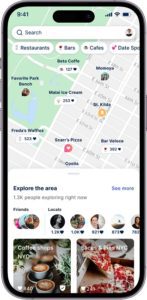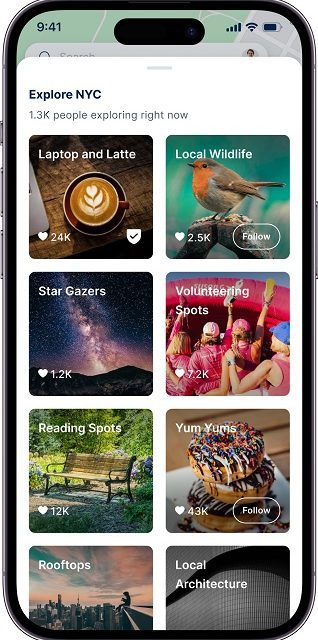 Atly, the burgeoning user-generated social mapping platform has shared remarkable insights from its latest consumer study, “Location-Based Recommendations: Mapping Trust & Digital Discovery in 2023”. A notable finding from the report is the surprising mistrust by almost a third of the respondents in the accuracy and utility of Google Maps, a top-rated navigation service.
Atly, the burgeoning user-generated social mapping platform has shared remarkable insights from its latest consumer study, “Location-Based Recommendations: Mapping Trust & Digital Discovery in 2023”. A notable finding from the report is the surprising mistrust by almost a third of the respondents in the accuracy and utility of Google Maps, a top-rated navigation service.
The investigation shows that as much as 30% of users lack confidence in Google Maps to find locations that best suit their needs and interests. This data highlights the mounting scepticism among consumers regarding prevalent mapping and recommendation tools.
In the current digital age, the search for reliable, location-based information remains a significant challenge. Atly’s study found that 72% of the surveyed population relies on recommendations from friends and family, more than social media influencers, online review sites, and Google Maps combined when seeking out destinations and restaurants. Google Maps, disappointingly, garnered a meagre trust vote from 11% of respondents for suggesting places matching their preferences.
Besides, the research highlighted users’ struggles while tracking and saving online recommendations. The results showed a majority of respondents, irrespective of age, still, employ antiquated and inefficient methods to save places they encounter online. Surprisingly, 50% of individuals use screenshots, while 39% stick to browser bookmarking.
This scarcity of credible information and the absence of effective discovery and saving mechanisms have a substantial real-world impact. A majority of saved locations by users go unvisited. Only 13% of the respondents frequently visit the places discovered online. A significant 29% confessed to seldom or never visiting the sites they had saved. For the 18-29 age group, this percentage goes up to 35%. This outcome decreases social media post performance for businesses and content creators.
 “Understanding how consumers source recommendations and what factors shape their trust in the discoveries they make online enables us to continually refine the consumer experience around discovering, tracking, and sharing location-based knowledge,” said Uriel Maslansky, CEO and co-founder of Atly.
“Understanding how consumers source recommendations and what factors shape their trust in the discoveries they make online enables us to continually refine the consumer experience around discovering, tracking, and sharing location-based knowledge,” said Uriel Maslansky, CEO and co-founder of Atly.
He also spoke about the considerable disconnect between trust and action in the digital discovery process and the necessity for innovative solutions that benefit consumers, businesses, and content creators alike.
Adding to this, Joshua Kaufman, Co-Founder of Atly, opined, “Google Maps is touted as the most reliable source for location-based content, yet it’s a known fact that the younger generation is gravitating towards social media platforms like Instagram and TikTok for their recommendations. Despite the abundance of information available, there is a lack of a comprehensive platform combining trusted sources with an excellent mapping experience. This is precisely the challenge we are addressing at Atly.”
Atly conducted an extensive survey with over 1,000 consumers across the United States to form these findings. The survey focused on understanding where people obtain recommendations for destinations and activities, the discovery processes they follow, and the conversion rate of these discoveries into actual visits.
For a comprehensive look at Atly’s findings, interested readers can visit their report here. To download Atly on your device, click here for App Store and Google Play Store.
Written by: Christine Nguyen















